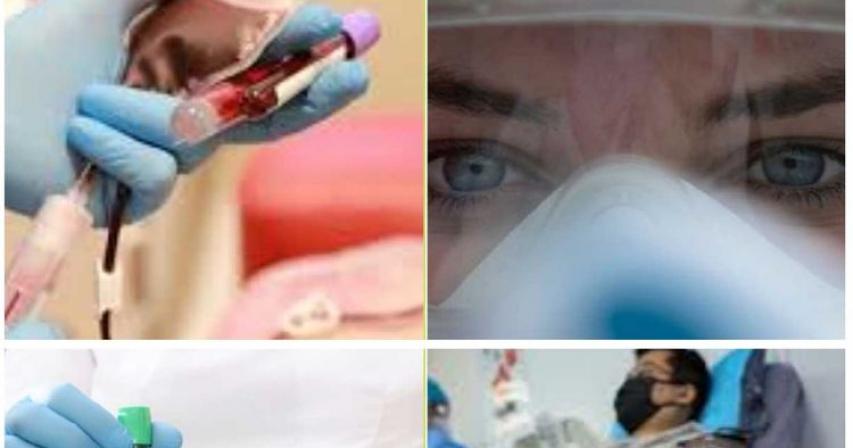Revealed: How plasma therapy helped treat 170 COVID-19 patients in Dubai

The Infectious Diseases Department at Rashid Hospital, Dubai, has carried out Convalescent Plasma Therapy (CPT) on 170 eligible COVID-19 patients with no complications, a top doctor told Gulf News.
Dr Dujana Mostafa Hamad, Consultant Physician at Rashid Hospital’s Infectious Disease Unit and Member of the DHA’s COVID-19 Research Committee, said, “To date, we have successfully transfused plasma with no transfusion-related complication to more than 170 eligible patients with moderate to severe COVID-19 infections and we have observed significant clinical improvement matching the international success rates with this form of therapy.”
In the absence of a vaccine or medicine that can cure COVID-19, CPT has been gaining ground globally since February. It has been historically used in times of major pandemics such as the Spanish Flu and has shown good results previously as well.
The Dubai Health Authority has set up a dedicated plasma clinic at the Rashid Hospital four times a week where blood plasma of recovered patients is collected.
What is CPT?
According to the Mayo Clinic US which has successfully treated patients with CPT, recovered patients carry several antibodies in their blood plasma. These are basically proteins that the body uses to fight off infections. The blood from people who’ve recovered is called convalescent plasma. Plasma is the liquid portion of the blood which is transfused in critical patients to combat COVID-19 and it has proven to be successful in many cases.
Dr Mai Raouf, Director of the Dubai Blood Donation Centre, said, “CPT is one of the treatment methods being used to support the management of patients diagnosed with COVID-19. It has antibodies against coronavirus and other immune factors that can support and boost the immune system of the patient to help fight against Coronavirus.”
Elaborating on the rationale behind using CPT, Dr Hamad said that success with plasma therapy in previous illnesses from coronavirus family has been encouraging.
“As COVID-19 is a novel infectious viral illness and due to the lack of evidenced-based safe and effective treatment options as well as support from prior data on the efficacy of the convalescent plasma from recovered patients with serious illness like Ebola virus illness, MERS-CoV, and SARS; the Infectious Disease Unit at Rashid Hospital and the Virology Lab at Latifa Hospital started collecting and saving blood samples for COVID-19 infected patients to identify potential future donors as early as February 2020.”
Dr Hamad. “With the full support of Dubai Blood Donation Centre, we were able to receive fully recovered COVID-19 patients as volunteer donors. We followed the highest standards of plasma collection and donation process.”
Since CPT has been introduced in COVID-19 treatment recently, it is still being evaluated based on successful precedents. Dr. Hamad added: “The research team is reviewing the outcome data in details and results will be published soon. Patients undergoing CPT have shown very good result especially when treatment was started early in the course of the disease. DHA’s scientific committee is now analysing all the clinical data and will publish the results soon. This is similar to what has been published in different part of the world about using the convalescent plasma to treat patients with COVID-19.”
How is CPT carried out?
Dr Raouf explained: “The plasma is collected from recovered patients who have completed 14 days and who have two negative PCR tests for COVID-19.
The donor has to be asymptomatic and healthy at the time of donation. All the required blood donation eligibility criteria is followed to ensure safety of the plasma donor and the safety of the collected plasma as a pharmaceutical product,” she added.
“The plasma is collected by using a special apheresis machine. This is a centrifuge machine that is able to separate the plasma from the blood along with leucocytes and platelets and collect the yellowish anti-body rich plasma. The plasma from recovered patients are stored in special freezers at -80 C. and thus have a shelf life of one year. The plasma is issued in hospitals as per the treating physician’s request”, she continued..
Apart from apheresis, blood plasma collection at the Centre is also subjected to an additional technique called pathogen inactivation technology to eradicate and kill all microorganisms in the end product with no effect on the efficiency of the therapeutic material. “This is an extra layer of protection added by DHA along with additional guidelines on donor selection which is over and above the guidelines issued by the Food and Drug Administration (FDA) to all blood donation centres in the first week of April 2020,” said Dr. Raouf.
Currently, plasma for all blood groups is available at the DHA blood bank and it is safe to use this plasma which is only administered after matching blood group and other stringent screening process.






Comments